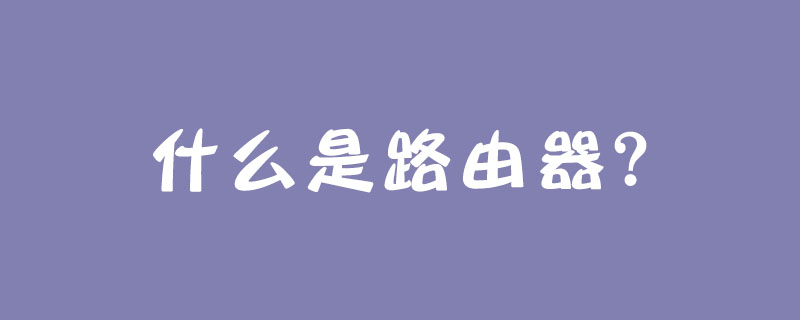Home >Common Problem >What is a router?
What is a router?
- 青灯夜游Original
- 2019-05-18 09:33:173836browse

Router (Router) is a device that connects various LANs and WANs in the Internet. It will automatically select and set routes according to the channel conditions, and send them in order based on the best path. Signal. Routers are the hubs and "traffic police" of the Internet.
At present, routers have been widely used in all walks of life, and products of various grades have become the main force in realizing the internal connection of various backbone networks, the interconnection between backbone networks, and the interconnection between backbone networks and the Internet.
The main difference between routing and switching is that switching occurs at the second layer (data link layer) of the OSI reference model, while routing occurs at the third layer, the network layer. This difference determines that routing and switches need to use different control information in the process of moving information, so the ways in which they implement their respective functions are different.
Router, also known as gateway device, is used to connect multiple logically separated networks. The so-called logical network represents a separate network or a subnet.
When data is transmitted from one subnet to another, it can be done through the routing function of the router. Therefore, the router has the function of determining the network address and selecting the IP path. It can establish flexible connections in a multi-network interconnection environment. It can connect various subnets with completely different data grouping and media access methods. The router only accepts source stations or Information about other routers is an interconnection device at the network layer.
The above is the detailed content of What is a router?. For more information, please follow other related articles on the PHP Chinese website!

